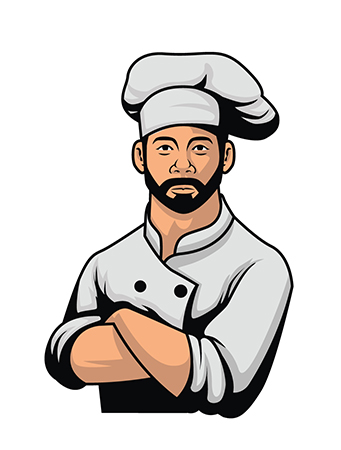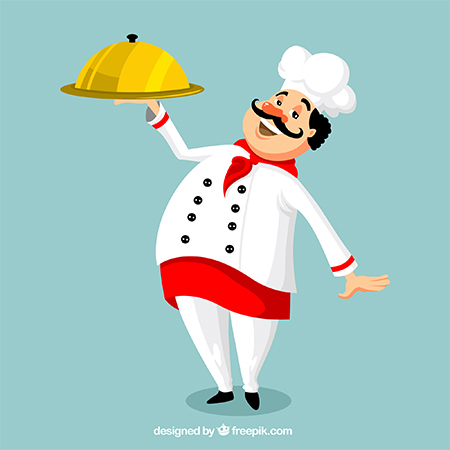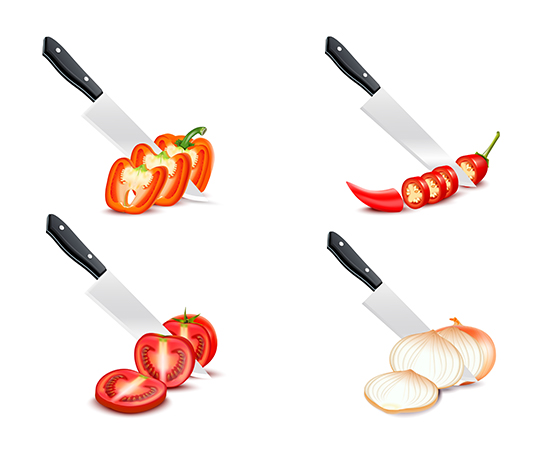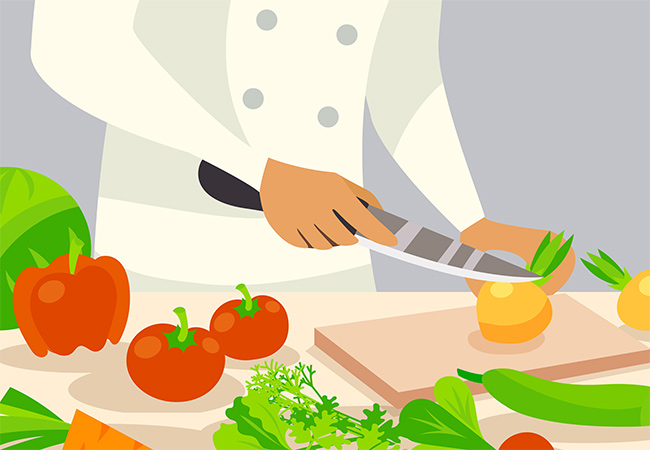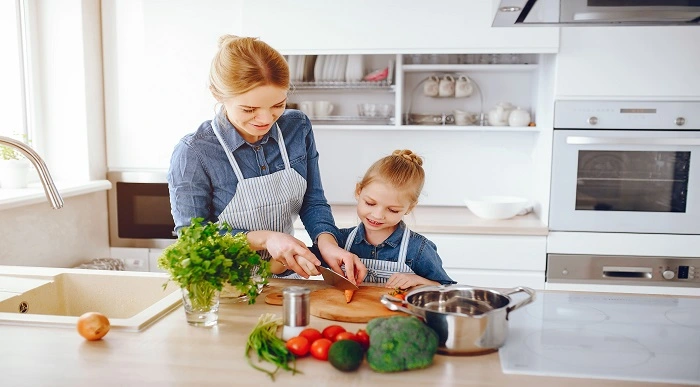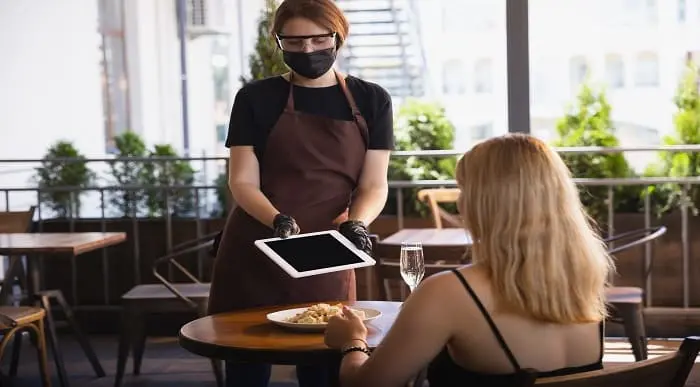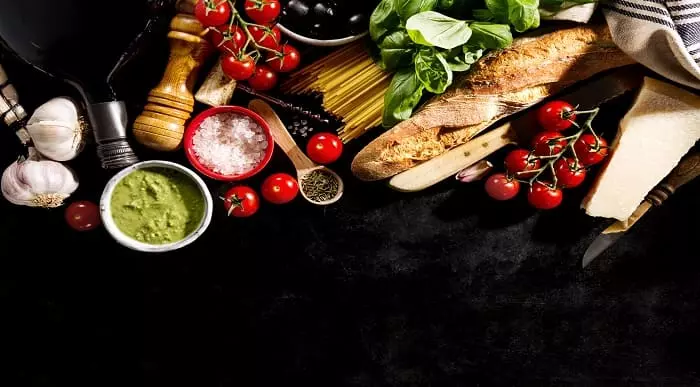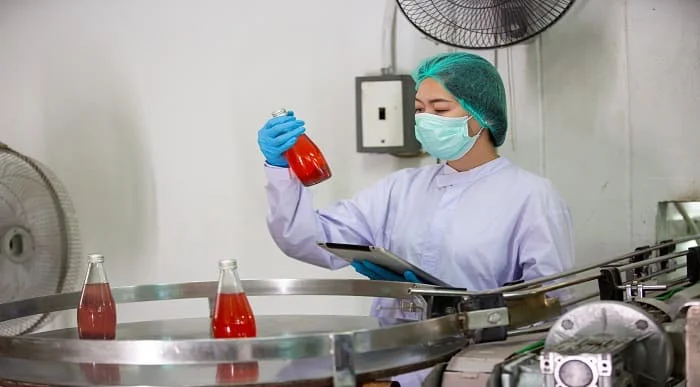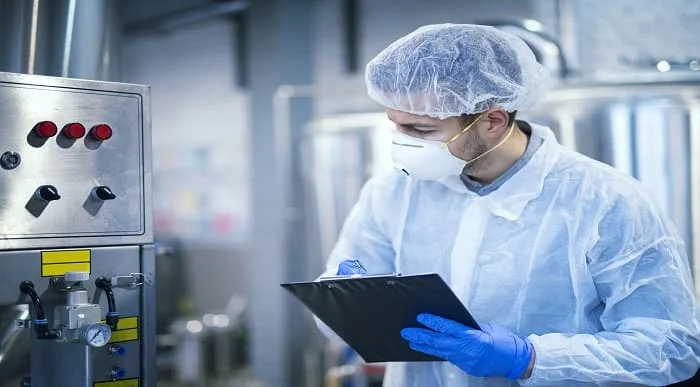Food Hygiene & Safety
What is the Difference between Chef and Cook
Those who do not belong to the culinary industry often consider the role of a ‘Cook’ and ‘Chef’ similar. Some also prefer thinking that the cooks who work in lavish hotels or restaurants are termed as chefs, whereas it’s not!
Though both of them have their duties in the kitchen, there are certain factors that distinguish a cook from a chef. Interested to know more about the difference between chef and cook? Then give a read to the blog!
Table of Content
What is a Chef?
A chef is someone who not only cooks but is also responsible for creating recipes, ordering ingredients, planning and pricing the menu, managing costs, overseeing food preparation and receiving customers’ feedback. So besides cooking, a chef has to carry out responsibilities within and outside the kitchen.
What are the Different Ranks of Chefs?
In every kitchen, there are different ranks of chefs who remain responsible for running the kitchen smoothly in order to deliver food orders within time. Every chef performs their job roles according to their hierarchical position. The following gives insight into the various ranks of chefs and their duties.
Executive Chef
Large chains or restaurants usually appoint an executive chef. An executive chef does very little cooking. Their primary role is to manage the kitchen and its staff. This includes planning menus, observing and training personnel, managing the culinary budget and sometimes purchasing. You need to have prior experience in cooking to be an executive chef. Good management skills are also expected for running the kitchen efficiently.
Head Chef (Chef de Cuisine)
The head chef remains at the top most position in restaurant kitchens and is responsible for controlling all the aspects of the kitchen. They create menus, control kitchen costs, and manage the kitchen staff. Some head chefs might leave the cooking to the deputy chef and the rest of the team, while others prefer to be involved in the routine cooking activities.
Deputy Chef (Sous Chef)
The deputy chef, also known as the sous chef, remains second-in-command in the kitchen. There can be more than one deputy chef, depending on the restaurant and its management. The deputy chef’s role may overlap with the head chef. However, the deputy chef is in charge of the kitchen and oversees the day-to-day activities.
Station Chef (Chef de Partie)
The station chefs play critical roles in the kitchen. These chefs cook the food that is being served to customers. Each station chef is responsible for a different food category. For example, there is a chef in charge of cooking the fish and there is also a chef who cooks the meat.
Commis Chef
A commis chef is a junior chef who learns from a more experienced chef, such as a chef de partie. They can be the ideal starting point if you want a senior role in a restaurant kitchen. Their work involve measuring ingredients, preparing meat and vegetables, assisting other chefs, cleaning the station and helping with deliveries.
What is a Cook?
Merriam-Webster defines ‘Cook’ as “a person who prepares food for eating.”
Cooks basically remain responsible for preparing ingredients, producing meals and cleaning their workspace. Unlike the chefs, cooks prepare food following the established recipe.
Typically, no formal training is required to be a cook; anyone who enjoys preparing food can be called a cook. A cook can either work in hospitals or academic settings or be a member of a household staff who performs kitchen duties along with preparing food.
What are the Different Types of Cooks?
The cooks who work in restaurants or particular food establishments are categorised into several types as per their responsibilities. The different types of cooks that can be found in the kitchen are-
Line Cooks
Line cooks are responsible for baking, sauteing, grilling and steaming food depending on the preparation style. They try to create an attractive plate by putting together the different parts of a meal. They also guide the junior cooks who are still learning.
Prep Cooks
The prep cooks peel vegetables, chop meat and measure other ingredients ahead of time to help other cooks quickly and efficiently produce orders.
Fry Cooks
They usually work in fast food establishments. Their duties involve prepping the food for frying, keeping an eye on the fryer so that the food is not overcooked, and ensuring that the deep fryer is operating correctly and safely.
Short-order cooks
The short-order cooks typically work in fast-food restaurants and diners where they take multiple orders at once. They use simple preparation techniques such as microwaving, frying and grilling.
 Are you looking for a Food Safety Course??
Are you looking for a Food Safety Course??
What is the Difference between Chef and Cook?
To find out the difference between a chef and a cook, you first need to have an idea about the qualifications, duties, salary and other relevant factors associated with the chefs and cooks. The following elaborately describes the important aspects of differentiating between a chef and a cook.
Qualification
Cooks:
When it comes to qualification, cooks usually do not require any formal education. Anyone having the passion and experience of preparing food can apply for the job of a cook.
Some cooks might have a minimum high school diploma or GED. They can also earn vocational qualification or an associate degree in a related field or a bachelor’s degree in an unrelated field. Cooks typically do not have any requirements for postsecondary education.
It’s mostly the working knowledge that is required in a cook’s job. The knowledge includes the ability to use mixers, grinders, slicers, food processors, a thorough experience of hot and cold food preparation and a good understanding of sanitation standards and health codes. Cooks might undertake Food Hygiene courses to maintain food hygiene standards.
Chefs:
On the contrary, chefs are expected to be trained in culinary school or go through an apprenticeship with an experienced chef.
Culinary certifications like a degree or diploma maximise the chances of employment and help to prove a chef’s proficiency in the industry. They also demonstrate a chef’s passion and dedication towards the role.
Chefs might enrol in degree programmes like an associate’s degree or a bachelor’s degree that takes two and four years, respectively. They might also complete a diploma that tends to be the shortest of all the culinary programmes.
According to Restaurants Brighton Jobs, “Many budding chefs study for a professional NVQ (National Vocational Qualifications) diploma. There are three levels to get you started, and each one lasts one school year if you study full-time.”
Level 1 Certificate in Food Preparation and Cooking
Level 2 Certificate in Food Preparation and Cooking
Level 3 Professional Cookery Diploma
Training:
Cooks:
Cooks may or may not have any professional training before starting their career. Most of the cooks are either self-trained or pursue a passion for cooking. However, they need to know about the basic preparation techniques, food storage and safety practices to work in a professional kitchen.
Chefs:
Chefs undergo specialised courses and practical training before earning their positions. They often start as a cook or commis chefs to gain the basic skills and understand the functions of a kitchen. Gradually, they advance to pursue a culinary apprenticeship. The culinary apprenticeship programmes provide practical training under an established chef to increase both skills and knowledge of the industry.
Skills:
Cooks:
Cooks are skilled at basic cooking functions like steaming, broiling, roasting and poaching. They are experts at the different kinds of cuts, so they are well aware of the difference between ‘shredding’ and ‘mincing.’ Cooks can also identify which knife is appropriate for which task.
The skills of a cook can also vary according to the cook’s position. For example, a prep cook is skilled at rapid chopping and a line cook knows how to saute perfectly.
Chefs:
Chefs have extensive proficiency in cooking and everything related to cooking. They are specialists in a single type of cuisine like French or Italian and a certain cooking style like barbecue.
Their skills go far beyond cooking. For example, chefs need to be skilled in planning menus from appetisers to desserts and creating delicious and cost-effective dishes. Since they also perform managerial duties, they must have strong interpersonal and leadership skills.
Responsibilities
Cooks:
The prime responsibility of a cook is to complete the tasks assigned to them to deliver a chef’s recipe. Cooks usually prepare food by following the recipes of the chefs. They perform basic kitchen functions like chopping, mixing and boiling, and handling other responsibilities like cleaning and ensuring proper storage procedures.
Chefs:
Chefs have more contribution and creative input in the kitchen. They have a greater understanding of food preparation and techniques. Chefs create their own recipes and make changes, improvise or experiment with ingredients to prepare food accordingly. Chefs also direct, appoint and supervise the duties of other chefs in the team.
Work Environment:
Cooks:
Cooks often work in non-eateries settings. For example- households, schools and colleges, hospitals or prisons. Cooks also work in restaurants but under the supervision of chefs.
Chefs:
Chefs, in contrast, work in chain or hotel restaurants where people specifically visit to have a meal. They also work in cruise ships and bars.
Salary:
Cooks:
The average base salary of a cook is £20,723 per year as per payscale. Cooks can earn a bonus worth £35 – £662.
Chefs:
According to payscale, the average base salary of a chef ranges between £28,475 – £39,000 per year. Additionally, they might earn a bonus worth £483 – £5,000.
If you are quite impressed with the job outline and prospects and the chef, you can certainly take a step towards becoming one. Check out this blog and learn how to become a chef.
Top Courses of this Category
Conclusion
By now, you have definitely acknowledged the difference between a chef and a cook. If you are currently working as a cook and aspire to be a chef, there is nothing that can stop you from being so! As stated in the blog, you just need to gather some additional knowledge and skills of a chef. Finally, we can say, “All chefs are cooks, but all cooks are not chefs.”
What to Read Next:
- Can You Reheat Rice? What is The Science of Reheating Rice
- Food Hygiene Certificate to Sell Sweets – It’s Mandatory or Not
- Can You Reheat Chicken? Storage, Defrosting and Reheating Techniques
- Why is a Well Designed Kitchen Important to Food Safety – Guide
- How Long Does a Level 2 Food Hygiene Certificate Last
- 7 Baking Tools and Equipment – A Complete List
- Food Safety Management System: Step by Step Complete Guide



